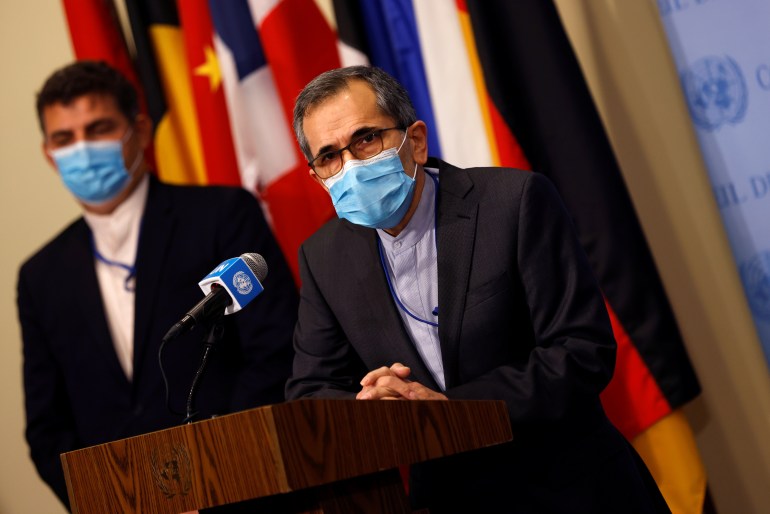Washington called on both the United Nations and the Security Council to re-impose all international sanctions on Iran, while France, Britain, Germany, Russia and China announced their rejection of this step, as Iran described it as illegal.
US Secretary of State Mike Pompeo said that he had submitted a formal letter to the Secretary-General of the United Nations and the Indonesian ambassador - who chairs this month the Security Council - in which he informed them of the re-imposition of all UN sanctions on Iran.
Pompeo added in a press conference that this process will lead to the entry into force of those sanctions within 30 days, and lead to the extension of the arms embargo on Tehran.
In the first reaction, the foreign ministries of France, Germany and Britain issued a joint statement saying that the United States was no longer participating in the nuclear agreement after its withdrawal on May 8, 2018, and therefore its initiative could not be supported.
The statement clarified that the three countries remain committed to the benefit of the nuclear agreement despite the major challenges created by the US withdrawal, considering that addressing the issue of Iran's lack of respect for its obligations in the nuclear agreement must be within the framework of a dialogue between the participants in the agreement.
On the other hand, the three countries called on Iran to retreat from all steps that are disproportionate to its nuclear obligations and to respect these obligations without delay.
In turn, the Commissioner for Security and Foreign Policy of the European Union Josep Borrell stressed that Washington cannot resort to the mechanism of activating international sanctions against Iran because it is not an aspect of the Iranian nuclear deal, adding in a statement that the agreement remains "a fundamental pillar of the non-proliferation structure that supports regional security."
The Chinese Foreign Ministry also said in a statement that the US demand to re-impose UN sanctions on Iran "has no legal basis and common sense."
A diplomatic source at the Security Council told Al-Jazeera that Russia called for an open session of the Security Council today to discuss the Iranian nuclear deal, and Russian Foreign Ministry spokeswoman Maria Zakharova said that the US efforts to re-impose sanctions "have no legal basis and will inevitably fail."
Russia's representative to the United Nations, Vasily Nebenzia, told reporters that only countries that are still in the Iran nuclear deal can demand the return of sanctions.
Tehran's position
On the other hand, Iran's representative to the United Nations Majid Takht Rawanji said, "We are firmly convinced that the message sent by the United States to the presidency of the Security Council and the references it included is null and has no legal basis, and therefore it is unacceptable."
Takht Rawanji considered that Washington had failed in its recent attempt to persuade the UN Security Council to impose an arms embargo on his country, and that it intends to implement what it calls a policy of maximum pressure on the United Nations, the Security Council and its members.
The Iranian delegate accused the United States of seeking to misuse the procedural process, saying it was against international laws.
For his part, Iranian Foreign Minister Muhammad Javad Zarif said in a message to the Security Council that Washington has no right to use the mechanism for resolving differences to restore sanctions on his country, calling on the Security Council and the international community to reject any US move to return sanctions.
Zarif indicated that Washington's dangerous and illegal measures ignore the laws that protect the world from chaos, as he put it.
Zarif had called on the Secretary-General of the United Nations to confront the American moves to empty international law of its content.
On the Yemeni issue, Zarif confirmed Tehran's readiness to provide assistance regarding Yemen and the Hodeidah port file.

